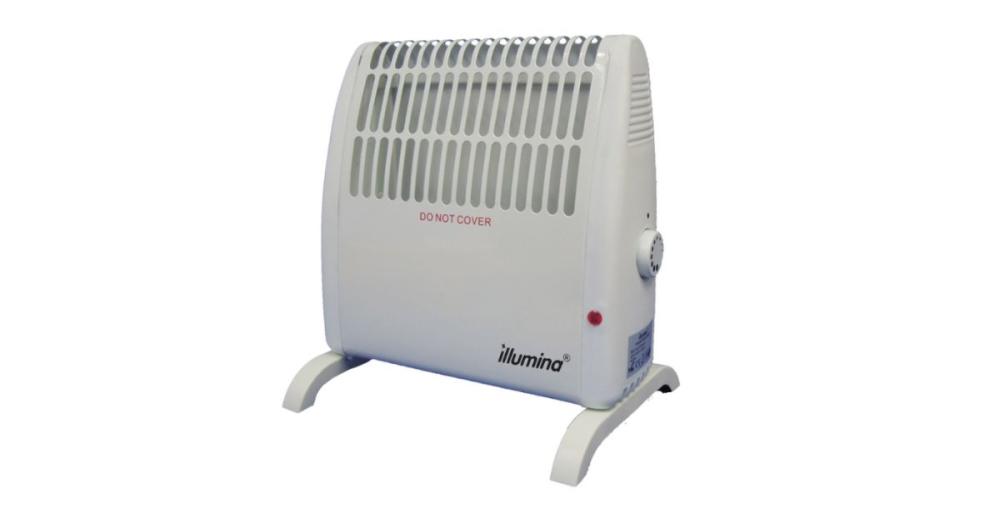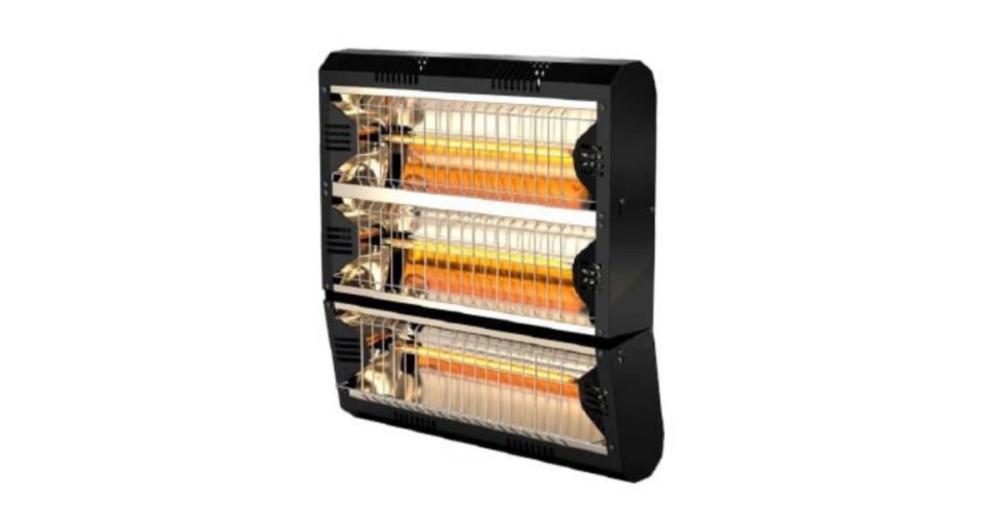Portable Heater Safety Guide: Stay Warm Without the Fire Risk
Portable Heater Safety Guide: Stay Warm Without the Fire Risk
Portable heaters are a quick, low-cost way to heat a room and reduce central heating use, especially in winter. From oil-filled radiators to fan heaters, these small appliances can make a big comfort difference.
However, portable heaters also bring real fire and electrical safety risks when used incorrectly. In the last five years, over 4,000 fires have been linked to portable heaters, causing dozens of deaths and more than 1,000 serious injuries. With so many homes now relying on space heaters, understanding portable heater safety is essential.
Types of Portable Heaters and Their Risks

Different types of portable heaters work in different ways, and each comes with its own safety considerations. Common options include:
- Oil-filled radiators: Efficient and stay warm for longer, but remain hot after switching off, so need careful placement.
- Fan heaters: Heat up quickly but can overheat if vents are blocked or used near flammable materials.
- Convector heaters: Warm the air in a room; must be kept clear of curtains, furniture and soft furnishings.
- Halogen heaters: Provide instant radiant heat but get very hot on the surface and need a stable base.
When buying any electric space heater, choose a model with built-in safety features such as tip-over protection, overheat protection and a visible safety mark (such as the UKCA or CE mark).
Essential Portable Heater Safety Tips
Following a few simple portable heater safety tips can dramatically reduce the risk of fire, electrical shock or burns:
- Never leave a portable heater unattended when switched on.
- Never leave a heater on while you sleep or when you leave the house.
- Keep a minimum 3 feet (1 metre) safety zone around the heater, clear of curtains, sofas, bedding, clothes and furniture.
- Place heaters on a flat, stable, non-flammable surface where they cannot be easily knocked over.
- Keep heaters away from water sources like sinks, bathtubs or wet floors.
- Do not use a portable heater to dry clothes or towels.
- Keep children and pets away from the heater to avoid burns or tipping.
These basic rules help prevent common causes of home heating fires and ensure your heater operates safely.
Electrical Safety: Cables, Sockets and Extensions

Many heater-related incidents are caused not by the heater itself, but by unsafe electrical setups. To reduce the risk of electrical fires:
- Plug portable heaters directly into a wall socket, not into an extension lead or power strip. Heaters draw a lot of power and can easily overload an extension.
- Never “daisy-chain” extensions (plugging one extension lead into another).
- Avoid using multi-way adaptors or trailing sockets for high-wattage heaters.
- Regularly check the power cable and plug for damage, scorching, fraying or loose connections.
- If you notice any burning smell, flickering, or the plug becoming very hot, switch off and unplug the heater immediately.
If there are any signs of wear and tear, do not use the heater until it has been checked and repaired by a qualified professional or replaced entirely.
Maintenance, Checks and Safe Use for Vulnerable People
Regular checks and sensible use help prolong the life of your heater and keep your home safe:
- Dust and clean the heater grilles and vents to prevent overheating.
- Ensure the heater’s safety cut-out and thermostat function correctly.
- Store the heater in a dry place when not in use and avoid damp areas that can damage internal components.
Extra care is needed when using portable heaters for elderly relatives or vulnerable people. Many surveys show that a large number of people leave heaters on overnight or use them to keep older family members warm. Instead:
- Use heaters with timers and thermostats to avoid constant running.
- Position heaters safely away from walking routes to prevent trips and falls.
- Make sure the person understands how to switch the heater off easily in an emergency.
For whole-home or long-term heating needs, consider more permanent and safer solutions such as fixed electric radiators or panel heaters installed by a qualified electrician.
Source - FANCY FARM ~Sweetness of Simplicity~
Why Buy Heaters and Electrical Products from Meteor Electrical?

Choosing quality equipment from trusted suppliers is one of the easiest ways to improve electric heater safety. Cheap, unbranded products from unreliable sources may lack proper safety features and certifications.
Meteor Electrical offers a wide range of electric heaters, oil-filled radiators, convector heaters and heating accessories from reputable manufacturers, all compliant with current UK and Ireland safety standards. With expert support, fast delivery and competitive prices, Meteor Electrical helps you stay warm while keeping your home and family safe.
Explore the full range today at Meteor Electrical and upgrade to safer, more efficient heating solutions.
FAQs
1. Are portable electric heaters safe to leave on overnight?
No. Portable heaters should not be left on while you sleep. There is a higher risk of fire if the heater is knocked over, covered by bedding, or overheats without anyone noticing.
2. Can I plug a portable heater into an extension lead?
It is not recommended. Portable heaters draw high current and can easily overload extension leads and multi-plug adaptors, increasing the risk of overheating and electrical fires. Always plug heaters directly into a wall socket.
3. How far should a space heater be from furniture and curtains?
Keep at least 3 feet (about 1 metre) of clearance on all sides of the heater from curtains, sofas, beds, clothes and other flammable materials to reduce fire risk.
4. What safety features should I look for in a portable heater?
Look for models with tip-over protection, overheat protection, a thermostat, timer, and clear safety markings such as UKCA or CE. Buying from a reputable supplier also helps ensure compliance with safety standards.
5. How often should I check my portable heater?
Check your heater, plug and cable regularly, especially at the start and end of the heating season. If you see damage, discolouration, frayed wires or smell burning, stop using it and have it inspected or replaced.
6. Is an oil-filled radiator safer than a fan heater?
Both can be safe if used correctly and kept clear of flammable items. Oil-filled radiators tend to provide more even heat and have a lower surface temperature than some fan heaters, but they still need proper placement and regular checks.

